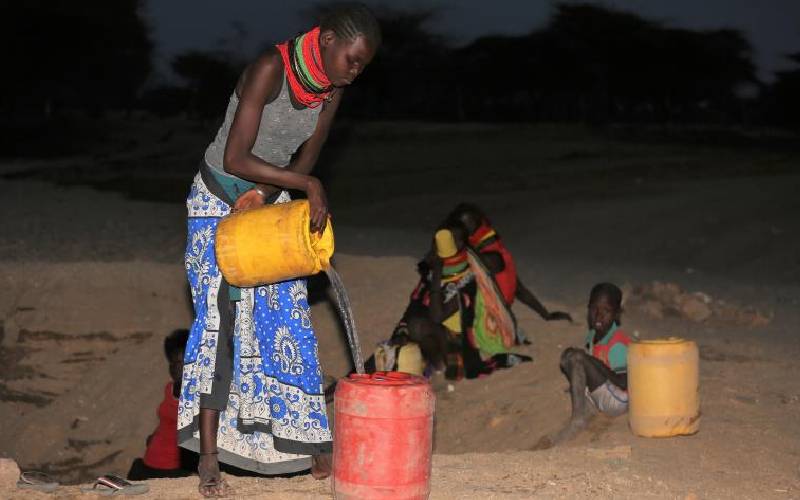×
The Standard e-Paper
Stay Informed, Even Offline

Turkana women fetch water from a manmade well. [Peter Ochieng, Standard]
Despite being one of the most affected by climate change in the global south, some of Kenya’s uptake of climate action and gains in 2021 are worth celebrating.